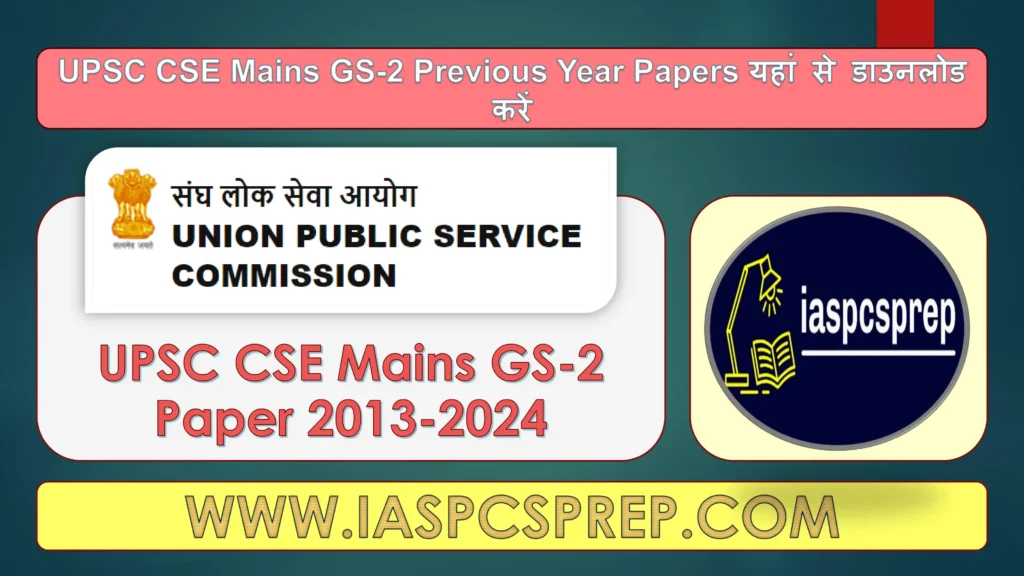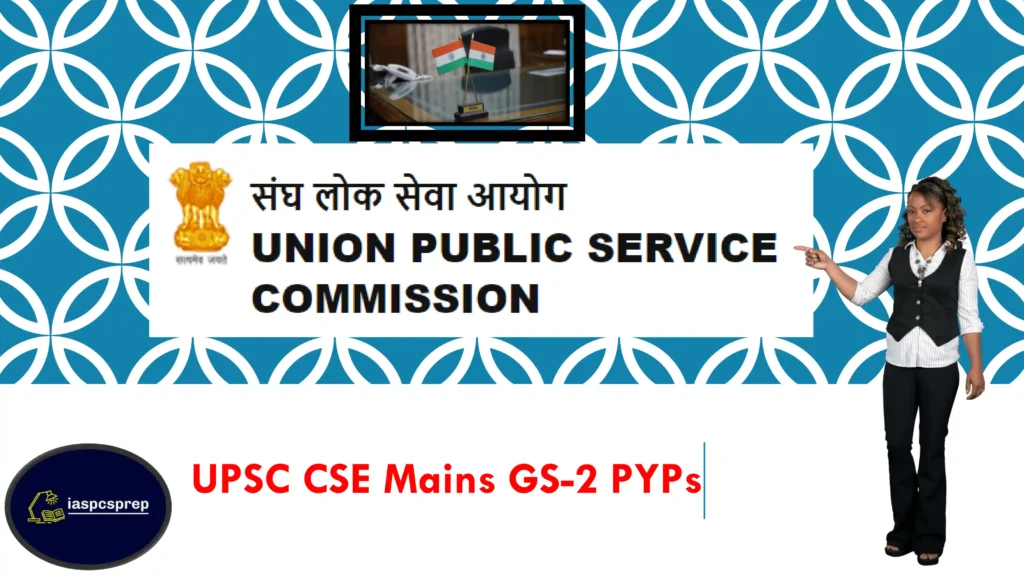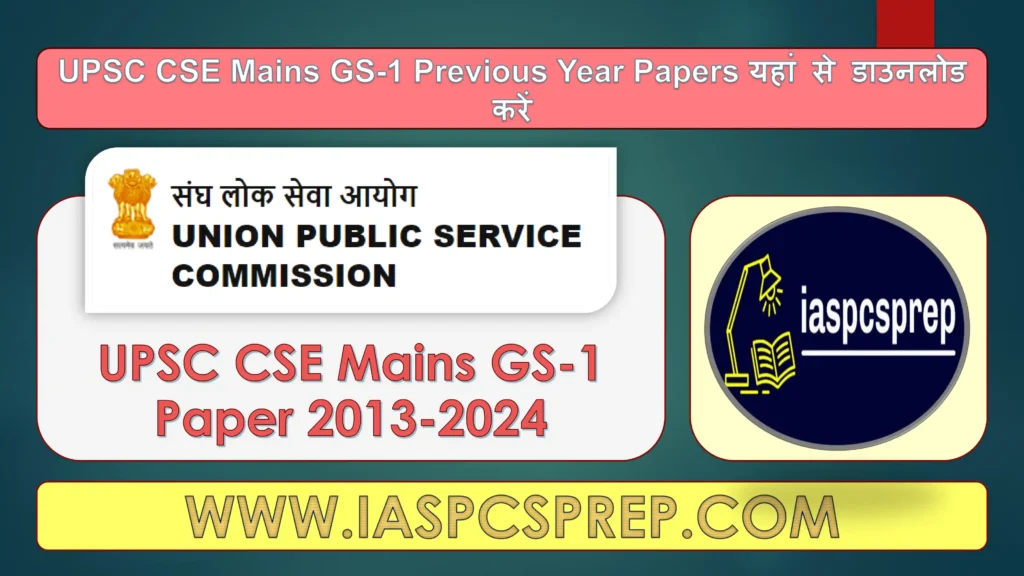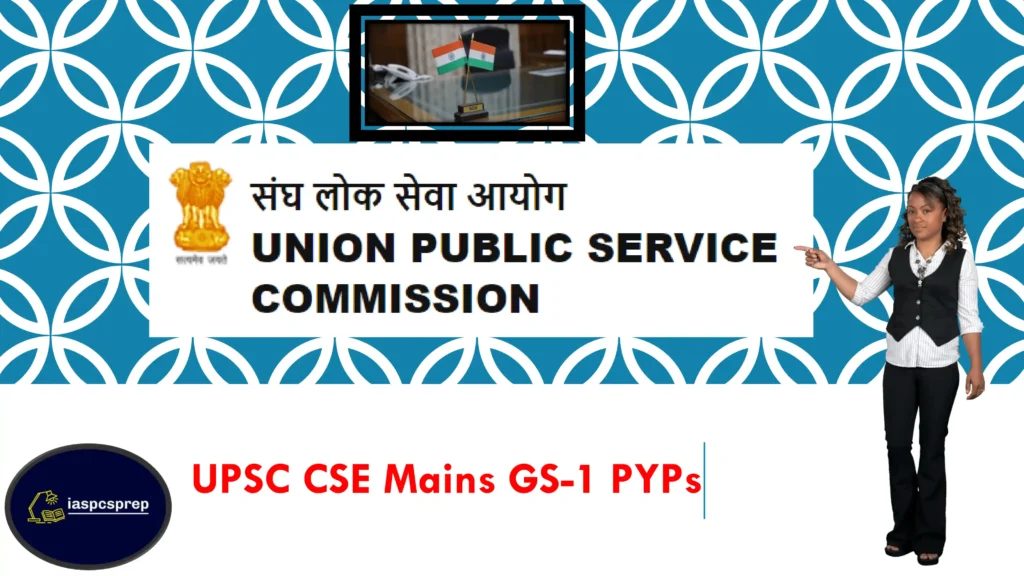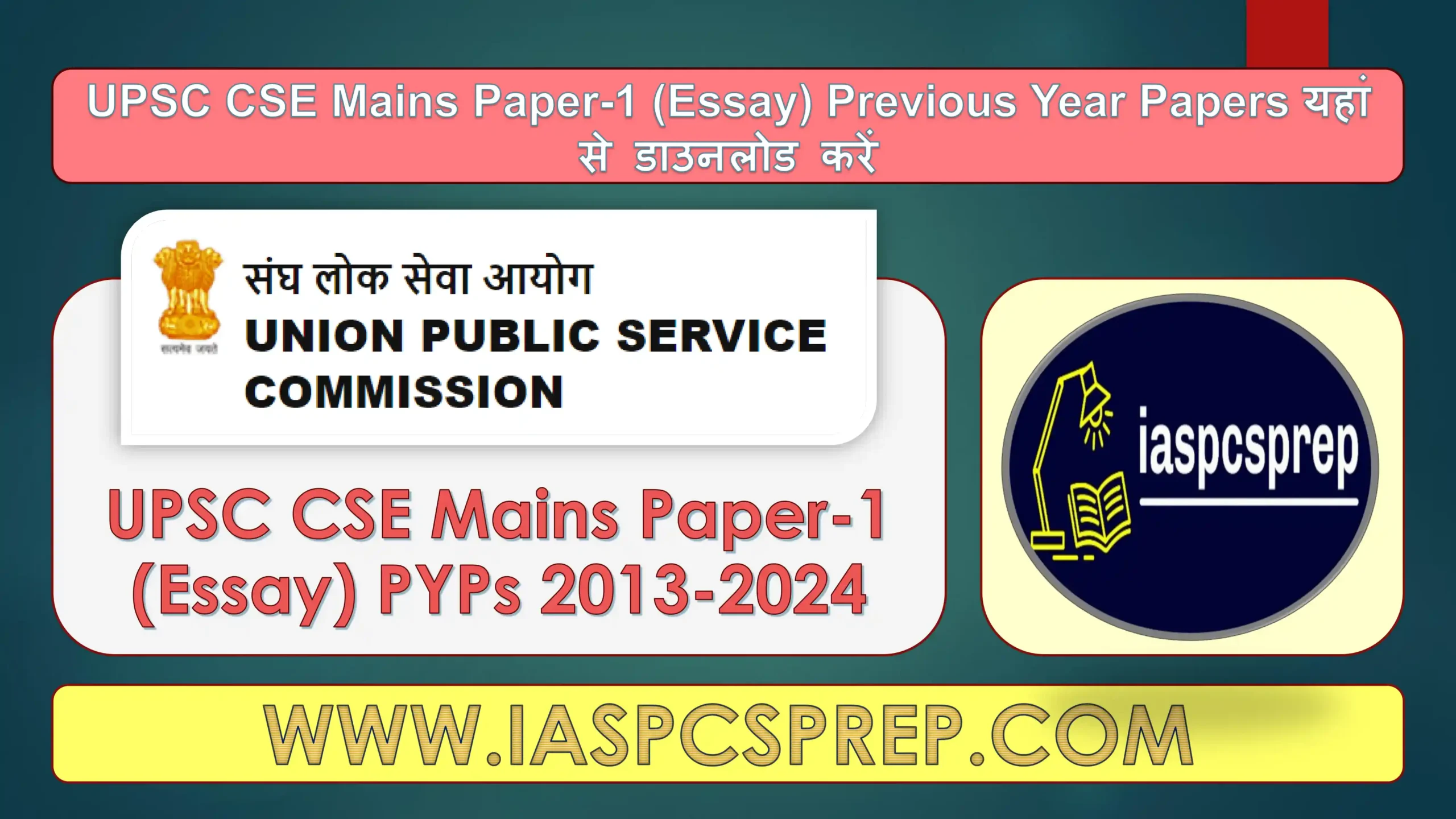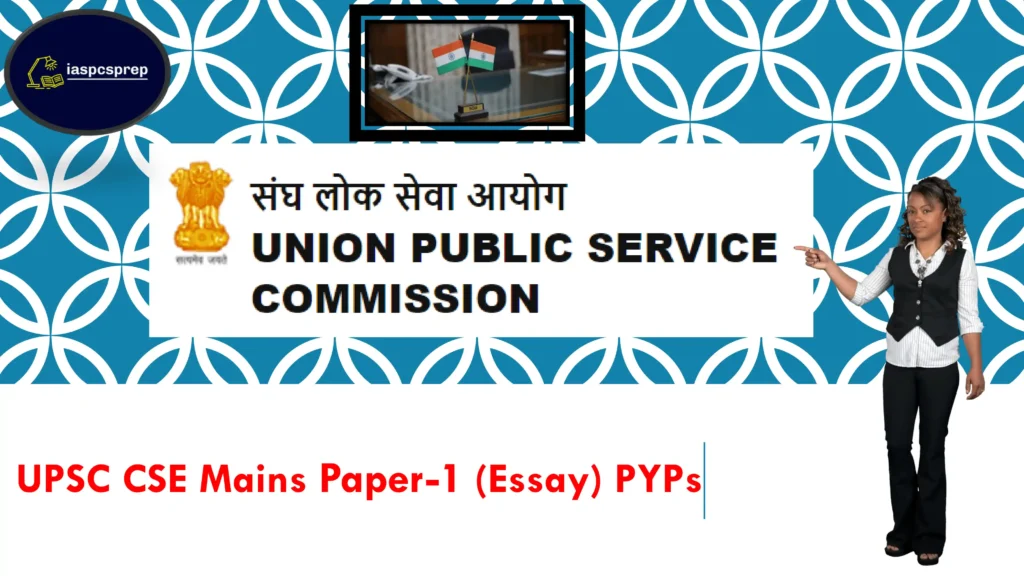UPSC CSE Mains Optional Previous Year Papers
The UPSC Civil Services Examination (CSE) allows candidates to choose one optional subject from a list of subjects for the Mains examination. The optional subject carries 500 marks, and candidates have the flexibility to choose a subject based on their academic background, interest, and expertise. The list of optional subjects is vast, covering a range of disciplines. Here is a list of optional subjects available for UPSC CSE:
1. Agriculture
2. Animal Husbandry and Veterinary Science
3. Anthropology
4. Botany
5. Chemistry
6. Civil Engineering
7. Commerce and Accountancy
8. Economics
9. Electrical Engineering
10. Geography
11. Geology
12. History
13. Law
14. Management
15. Mathematics
16. Mechanical Engineering
17. Medical Science
18. Philosophy
19. Physics
20. Political Science and International Relations
21. Psychology
22. Public Administration
23. Sociology
24. Statistics
25. Zoology
Candidates are required to choose one optional subject from this list. The optional paper is divided into two papers (Optional Paper-1 and Optional Paper-2), each carrying 250 marks, making a total of 500 marks. The optional subject is crucial in the Mains examination as it allows candidates to showcase their specialized knowledge and expertise in a specific field.
It’s important to note that the availability of optional subjects may be subject to change, and candidates should refer to the official UPSC notification or website for the most updated and accurate information. Additionally, candidates should choose their optional subject based on their interest, background, and the availability of study material and guidance.
UPSC CSE Mains Paper-6 (Optional Paper-1) Previous Year Papers 2013-2024
| Optional Subject | Mains Paper-6 (Optional Paper-1) PYPs |
| Agriculture | 2013 | 2014 | 2015 | 2016 | 2017 | 2018 | 2019 | 2020 | 2021 | 2022 | 2023 | 2024 |
| Animal Husbandry and Veterinary Science | 2013 | 2014 | 2015 | 2016 | 2017 | 2018 | 2019 | 2020 | 2021 | 2022 | 2023 | 2024 |
| Anthropology | 2013 | 2014 | 2015 | 2016 | 2017 | 2018 | 2019 | 2020 | 2021 | 2022 | 2023 | 2024 |
| Botany | 2013 | 2014 | 2015 | 2016 | 2017 | 2018 | 2019 | 2020 | 2021 | 2022 | 2023 | 2024 |
| Chemistry | 2013 | 2014 | 2015 | 2016 | 2017 | 2018 | 2019 | 2020 | 2021 | 2022 | 2023 | 2024 |
| Civil Engineering | 2013 | 2014 | 2015 | 2016 | 2017 | 2018 | 2019 | 2020 | 2021 | 2022 | 2023 | 2024 |
| Commerce and Accountancy | 2013 | 2014 | 2015 | 2016 | 2017 | 2018 | 2019 | 2020 | 2021 | 2022 | 2023 | 2024 |
| Economics | 2013 | 2014 | 2015 | 2016 | 2017 | 2018 | 2019 | 2020 | 2021 | 2022 | 2023 | 2024 |
| Electrical Engineering | 2013 | 2014 | 2015 | 2016 | 2017 | 2018 | 2019 | 2020 | 2021 | 2022 | 2023 | 2024 |
| Geography | 2013 | 2014 | 2015 | 2016 | 2017 | 2018 | 2019 | 2020 | 2021 | 2022 | 2023 | 2024 |
| Geology | 2013 | 2014 | 2015 | 2016 | 2017 | 2018 | 2019 | 2020 | 2021 | 2022 | 2023 | 2024 |
| History | 2013 | 2014 | 2015 | 2016 | 2017 | 2018 | 2019 | 2020 | 2021 | 2022 | 2023 | 2024 |
| Law | 2013 | 2014 | 2015 | 2016 | 2017 | 2018 | 2019 | 2020 | 2021 | 2022 | 2023 | 2024 |
| Management | 2013 | 2014 | 2015 | 2016 | 2017 | 2018 | 2019 | 2020 | 2021 | 2022 | 2023 | 2024 |
| Mathematics | 2013 | 2014 | 2015 | 2016 | 2017 | 2018 | 2019 | 2020 | 2021 | 2022 | 2023 | 2024 |
| Mechanical Engineering | 2013 | 2014 | 2015 | 2016 | 2017 | 2018 | 2019 | 2020 | 2021 | 2022 | 2023 | 2024 |
| Medical Science | 2013 | 2014 | 2015 | 2016 | 2017 | 2018 | 2019 | 2020 | 2021 | 2022 | 2023 | 2024 |
| Philosophy | 2013 | 2014 | 2015 | 2016 | 2017 | 2018 | 2019 | 2020 | 2021 | 2022 | 2023 | 2024 |
| Physics | 2013 | 2014 | 2015 | 2016 | 2017 | 2018 | 2019 | 2020 | 2021 | 2022 | 2023 | 2024 |
| Political Science and International Relations | 2013 | 2014 | 2015 | 2016 | 2017 | 2018 | 2019 | 2020 | 2021 | 2022 | 2023 | 2024 |
| Psychology | 2013 | 2014 | 2015 | 2016 | 2017 | 2018 | 2019 | 2020 | 2021 | 2022 | 2023 | 2024 |
| Public Administration | 2013 | 2014 | 2015 | 2016 | 2017 | 2018 | 2019 | 2020 | 2021 | 2022 | 2023 | 2024 |
| Sociology | 2013 | 2014 | 2015 | 2016 | 2017 | 2018 | 2019 | 2020 | 2021 | 2022 | 2023 | 2024 |
| Statistics | 2013 | 2014 | 2015 | 2016 | 2017 | 2018 | 2019 | 2020 | 2021 | 2022 | 2023 | 2024 |
| Zoology | 2013 | 2014 | 2015 | 2016 | 2017 | 2018 | 2019 | 2020 | 2021 | 2022 | 2023 | 2024 |
| Assamese Literature | 2013 | 2014 | 2015 | 2016 | 2017 | 2018 | 2019 | 2020 | 2021 | 2022 | 2023 | 2024 |
| Bengali Literature | 2013 | 2014 | 2015 | 2016 | 2017 | 2018 | 2019 | 2020 | 2021 | 2022 | 2023 | 2024 |
| English Literature | 2013 | 2014 | 2015 | 2016 | 2017 | 2018 | 2019 | 2020 | 2021 | 2022 | 2023 | 2024 |
| Gujarati Literature | 2013 | 2014 | 2015 | 2016 | 2017 | 2018 | 2019 | 2020 | 2021 | 2022 | 2023 | 2024 |
| Hindi Literature | 2013 | 2014 | 2015 | 2016 | 2017 | 2018 | 2019 | 2020 | 2021 | 2022 | 2023 | 2024 |
| Kannada Literature | 2013 | 2014 | 2015 | 2016 | 2017 | 2018 | 2019 | 2020 | 2021 | 2022 | 2023 | 2024 |
| Maithili Literature | 2013 | 2014 | 2015 | 2016 | 2017 | 2018 | 2019 | 2020 | 2021 | 2022 | 2023 | 2024 |
| Malayalam Literature | 2013 | 2014 | 2015 | 2016 | 2017 | 2018 | 2019 | 2020 | 2021 | 2022 | 2023 | 2024 |
| Manipuri Literature | 2013 | 2014 | 2015 | 2016 | 2017 | 2018 | 2019 | 2020 | 2021 | 2022 | 2023 | 2024 |
| Marathi Literature | 2013 | 2014 | 2015 | 2016 | 2017 | 2018 | 2019 | 2020 | 2021 | 2022 | 2023 | 2024 |
| Oriya Literature | 2013 | 2014 | 2015 | 2016 | 2017 | 2018 | 2019 | 2020 | 2021 | 2022 | 2023 | 2024 |
| Punjabi Literature | 2013 | 2014 | 2015 | 2016 | 2017 | 2018 | 2019 | 2020 | 2021 | 2022 | 2023 | 2024 |
| Sanskrit Literature | 2013 | 2014 | 2015 | 2016 | 2017 | 2018 | 2019 | 2020 | 2021 | 2022 | 2023 | 2024 |
| Sindhi (Devanagari) Literature | 2013 | 2014 | 2015 | 2016 | 2017 | 2018 | 2019 | 2020 | 2021 | 2022 | 2023 | 2024 |
| Tamil Literature | 2013 | 2014 | 2015 | 2016 | 2017 | 2018 | 2019 | 2020 | 2021 | 2022 | 2023 | 2024 |
| Telugu Literature | 2013 | 2014 | 2015 | 2016 | 2017 | 2018 | 2019 | 2020 | 2021 | 2022 | 2023 | 2024 |
| Urdu Literature | 2013 | 2014 | 2015 | 2016 | 2017 | 2018 | 2019 | 2020 | 2021 | 2022 | 2023 | 2024 |
UPSC CSE Mains Paper-7 (Optional Paper-2) Previous Year Papers 2013-2024
| Optional Subject | Mains Paper-7 (Optional Paper-2) PYPs |
| Agriculture | 2013 | 2014 | 2015 | 2016 | 2017 | 2018 | 2019 | 2020 | 2021 | 2022 | 2023 | 2024 |
| Animal Husbandry and Veterinary Science | 2013 | 2014 | 2015 | 2016 | 2017 | 2018 | 2019 | 2020 | 2021 | 2022 | 2023 | 2024 |
| Anthropology | 2013 | 2014 | 2015 | 2016 | 2017 | 2018 | 2019 | 2020 | 2021 | 2022 | 2023 | 2024 |
| Botany | 2013 | 2014 | 2015 | 2016 | 2017 | 2018 | 2019 | 2020 | 2021 | 2022 | 2023 | 2024 |
| Chemistry | 2013 | 2014 | 2015 | 2016 | 2017 | 2018 | 2019 | 2020 | 2021 | 2022 | 2023 | 2024 |
| Civil Engineering | 2013 | 2014 | 2015 | 2016 | 2017 | 2018 | 2019 | 2020 | 2021 | 2022 | 2023 | 2024 |
| Commerce and Accountancy | 2013 | 2014 | 2015 | 2016 | 2017 | 2018 | 2019 | 2020 | 2021 | 2022 | 2023 | 2024 |
| Economics | 2013 | 2014 | 2015 | 2016 | 2017 | 2018 | 2019 | 2020 | 2021 | 2022 | 2023 | 2024 |
| Electrical Engineering | 2013 | 2014 | 2015 | 2016 | 2017 | 2018 | 2019 | 2020 | 2021 | 2022 | 2023 | 2024 |
| Geography | 2013 | 2014 | 2015 | 2016 | 2017 | 2018 | 2019 | 2020 | 2021 | 2022 | 2023 | 2024 |
| Geology | 2013 | 2014 | 2015 | 2016 | 2017 | 2018 | 2019 | 2020 | 2021 | 2022 | 2023 | 2024 |
| History | 2013 | 2014 | 2015 | 2016 | 2017 | 2018 | 2019 | 2020 | 2021 | 2022 | 2023 | 2024 |
| Law | 2013 | 2014 | 2015 | 2016 | 2017 | 2018 | 2019 | 2020 | 2021 | 2022 | 2023 | 2024 |
| Management | 2013 | 2014 | 2015 | 2016 | 2017 | 2018 | 2019 | 2020 | 2021 | 2022 | 2023 | 2024 |
| Mathematics | 2013 | 2014 | 2015 | 2016 | 2017 | 2018 | 2019 | 2020 | 2021 | 2022 | 2023 | 2024 |
| Mechanical Engineering | 2013 | 2014 | 2015 | 2016 | 2017 | 2018 | 2019 | 2020 | 2021 | 2022 | 2023 | 2024 |
| Medical Science | 2013 | 2014 | 2015 | 2016 | 2017 | 2018 | 2019 | 2020 | 2021 | 2022 | 2023 | 2024 |
| Philosophy | 2013 | 2014 | 2015 | 2016 | 2017 | 2018 | 2019 | 2020 | 2021 | 2022 | 2023 | 2024 |
| Physics | 2013 | 2014 | 2015 | 2016 | 2017 | 2018 | 2019 | 2020 | 2021 | 2022 | 2023 | 2024 |
| Political Science and International Relations | 2013 | 2014 | 2015 | 2016 | 2017 | 2018 | 2019 | 2020 | 2021 | 2022 | 2023 | 2024 |
| Psychology | 2013 | 2014 | 2015 | 2016 | 2017 | 2018 | 2019 | 2020 | 2021 | 2022 | 2023 | 2024 |
| Public Administration | 2013 | 2014 | 2015 | 2016 | 2017 | 2018 | 2019 | 2020 | 2021 | 2022 | 2023 | 2024 |
| Sociology | 2013 | 2014 | 2015 | 2016 | 2017 | 2018 | 2019 | 2020 | 2021 | 2022 | 2023 | 2024 |
| Statistics | 2013 | 2014 | 2015 | 2016 | 2017 | 2018 | 2019 | 2020 | 2021 | 2022 | 2023 | 2024 |
| Zoology | 2013 | 2014 | 2015 | 2016 | 2017 | 2018 | 2019 | 2020 | 2021 | 2022 | 2023 | 2024 |
| Assamese Literature | 2013 | 2014 | 2015 | 2016 | 2017 | 2018 | 2019 | 2020 | 2021 | 2022 | 2023 | 2024 |
| Bengali Literature | 2013 | 2014 | 2015 | 2016 | 2017 | 2018 | 2019 | 2020 | 2021 | 2022 | 2023 | 2024 |
| English Literature | 2013 | 2014 | 2015 | 2016 | 2017 | 2018 | 2019 | 2020 | 2021 | 2022 | 2023 | 2024 |
| Gujarati Literature | 2013 | 2014 | 2015 | 2016 | 2017 | 2018 | 2019 | 2020 | 2021 | 2022 | 2023 | 2024 |
| Hindi Literature | 2013 | 2014 | 2015 | 2016 | 2017 | 2018 | 2019 | 2020 | 2021 | 2022 | 2023 | 2024 |
| Kannada Literature | 2013 | 2014 | 2015 | 2016 | 2017 | 2018 | 2019 | 2020 | 2021 | 2022 | 2023 | 2024 |
| Maithili Literature | 2013 | 2014 | 2015 | 2016 | 2017 | 2018 | 2019 | 2020 | 2021 | 2022 | 2023 | 2024 |
| Malayalam Literature | 2013 | 2014 | 2015 | 2016 | 2017 | 2018 | 2019 | 2020 | 2021 | 2022 | 2023 | 2024 |
| Manipuri Literature | 2013 | 2014 | 2015 | 2016 | 2017 | 2018 | 2019 | 2020 | 2021 | 2022 | 2023 | 2024 |
| Marathi Literature | 2013 | 2014 | 2015 | 2016 | 2017 | 2018 | 2019 | 2020 | 2021 | 2022 | 2023 | 2024 |
| Odia Literature | 2013 | 2014 | 2015 | 2016 | 2017 | 2018 | 2019 | 2020 | 2021 | 2022 | 2023 | 2024 |
| Punjabi Literature | 2013 | 2014 | 2015 | 2016 | 2017 | 2018 | 2019 | 2020 | 2021 | 2022 | 2023 | 2024 |
| Sanskrit Literature | 2013 | 2014 | 2015 | 2016 | 2017 | 2018 | 2019 | 2020 | 2021 | 2022 | 2023 | 2024 |
| Sindhi (Devanagari) Literature | 2013 | 2014 | 2015 | 2016 | 2017 | 2018 | 2019 | 2020 | 2021 | 2022 | 2023 | 2024 |
| Tamil Literature | 2013 | 2014 | 2015 | 2016 | 2017 | 2018 | 2019 | 2020 | 2021 | 2022 | 2023 | 2024 |
| Telugu Literature | 2013 | 2014 | 2015 | 2016 | 2017 | 2018 | 2019 | 2020 | 2021 | 2022 | 2023 | 2024 |
| Urdu Literature | 2013 | 2014 | 2015 | 2016 | 2017 | 2018 | 2019 | 2020 | 2021 | 2022 | 2023 | 2024 |
| If you are satisfied with our website iaspcsprep.com, Please like and share with more people. | |
| Follow on Instagram | Follow Now |
| Follow on Facebook | Follow Now |
| Join Telegram | Join Now |
| Join WhatsApp Group for PDF | Join Now |
| For any Query and Feedback, Contact Us at – study@iaspcsprep.com | |

| FAQ – UPSC CSE Mains Optional Previous Year Papers |
| Q. Why is it important to study UPSC CSE Mains Optional Previous Year Papers? Ans. Reviewing previous year papers helps candidates understand the question patterns, identify important topics, and practice effective answer writing for the optional subject. Q. How can studying UPSC CSE Mains Optional Previous Year Papers enhance my preparation strategy? Ans. Previous year papers provide insights into the weightage of different topics, helping candidates prioritize their study material and focus on areas that are frequently tested. Q. Are there any changes in the pattern of Optional Papers over the years? Ans. Analyzing previous year papers helps candidates identify any changes in question patterns, evolving trends, or shifts in emphasis on specific topics within the chosen optional subject. Q. Can studying UPSC CSE Mains Optional Previous Year Papers help in time management during the exam? Ans. Yes, by practicing with previous year papers, candidates can develop effective time management strategies, allocating time based on the complexity and marks weightage of different questions. Q. How can I adapt my study plan based on the insights from UPSC CSE Mains Optional Previous Year Papers? Ans. Insights from previous year papers help in refining study plans. Candidates can tailor their preparation by focusing on areas with higher question frequency and relevance. Q. Is it advisable to attempt solving the UPSC CSE Mains Optional Previous Year Papers under exam conditions? Ans. Yes, attempting previous year papers under timed conditions simulates exam scenarios, allowing candidates to assess their performance, improve time management, and enhance their exam-day readiness. Q. Can studying UPSC CSE Mains Optional Previous Year Papers help in addressing weak areas in my preparation? Ans. Absolutely, by identifying weak areas through the analysis of previous year papers, candidates can focus on strengthening those areas, ensuring a more comprehensive preparation. Q. Are there any specific question types or patterns to look out for in UPSC CSE Mains Optional Previous Year Papers? Ans. Previous year papers may reveal certain question types or patterns that are frequently repeated. Identifying these can help candidates prepare more strategically for the exam. Q. How recent should the UPSC CSE Mains Optional Previous Year Papers be considered for effective preparation? Ans. While it’s essential to prioritize recent papers, candidates can benefit from reviewing a range of years to understand both current trends and the historical evolution of the optional subject in the UPSC CSE Mains. Q. Can UPSC CSE Mains Optional Previous Year Papers assist in understanding the relevance of current affairs in the exam? Ans. Yes, previous year papers often incorporate questions related to contemporary issues. Analyzing these questions helps candidates align their preparation with the relevance of current affairs in the exam. Q. How can I make the best use of UPSC CSE Mains Optional Previous Year Papers for revision purposes? Ans. Candidates can use previous year papers as a comprehensive revision tool by revisiting and reinforcing their understanding of key topics and practicing answer writing. Q. Are there any common challenges candidates face in solving UPSC CSE Mains Optional Previous Year Papers? Ans. Balancing the coverage of the entire syllabus, adapting to variations in question patterns, and managing time effectively are common challenges that candidates may encounter. Q. Should I prioritize specific years when selecting UPSC CSE Mains Optional Previous Year Papers for practice? Ans. While recent years should be prioritized, candidates can also benefit from selecting a mix of papers to gain a holistic understanding of the optional subject’s examination dynamics. Q. How can I use UPSC CSE Mains Optional Previous Year Papers to build my confidence for the actual exam? Ans. Regular practice with previous year papers builds confidence by familiarizing candidates with the exam format, improving answer writing skills, and enhancing their overall preparedness. Q. Are there any additional resources to complement the study of UPSC CSE Mains Optional Previous Year Papers? Ans. Alongside previous year papers, candidates should refer to standard textbooks, study materials, and current affairs sources to ensure a comprehensive and well-rounded preparation for the optional subject. Remember, while UPSC CSE Mains Optional Previous Year Papers are valuable, they should be integrated into a comprehensive preparation strategy for optimal performance in the UPSC Civil Services Examination. These FAQs provide guidance on leveraging UPSC CSE Mains Optional Previous Year Papers as a crucial component of your preparation strategy. Note:- For any other information or query about UPSC CSE Examination, Please visit the Official Website https://upsc.gov.in. |


Related Posts
- UPSC CSE Mains GS-3 PYPs 2013-2023
- UPSC CSE Mains GS-2 PYPs 2013-2023
- UPSC CSE Mains GS-1 PYPs 2013-2023
- UPSC CSE Mains Paper-1 (Essay) PYPs 2013-2023
- UPSC CSE Prelims Paper-2 (CSAT) PYPs 2011-2024
- UPSC CSE Prelims Paper-1 (GS) PYPs 2011-2024






